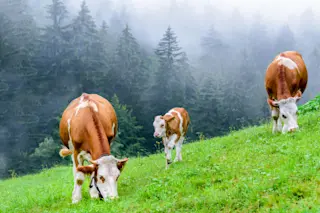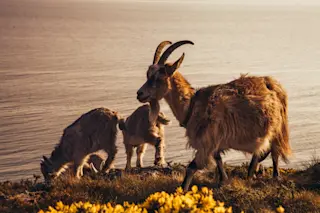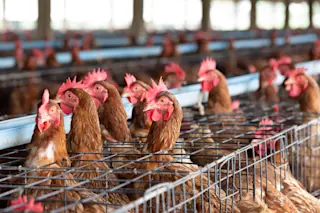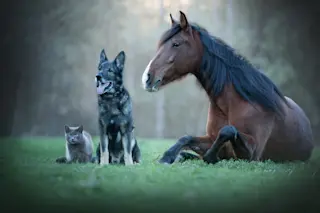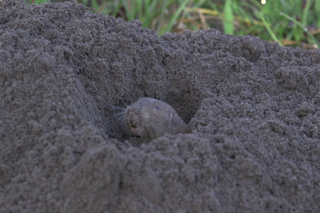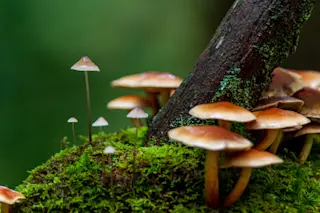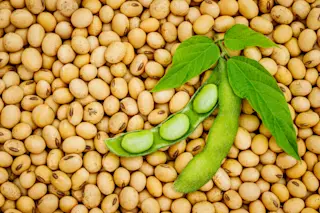Which is better for the environment: Grass-fed or corn-fed cows? The question is not as simple as you might think. Eco-minded meat eaters tend to assume that free-ranging cattle nibbling on grassy pastures is superior to herded cows fattened on corn in concentrated animal feeding lot operations (CAFO's). Slate explored this assumption in 2010. (There is also a similar debate over which method produces tastier, more nutritious T-Bone steaks.) Discussion has largely focused on which has the bigger carbonfootprint. The issue is more complicated than that, as Marc Gunther describes in a new Yale Environment 360 piece. He also notes, interestingly:
...green groups that readily fight coal plants or suburban sprawl have for the most part shown little desire to do battle with meat. The Meatless Monday campaign was started not by environmentalists but by the school of public health at Johns Hopkins. The Mayo Clinic has more to say about meat than The Nature Conservancy, although TNC's chief executive, Mark Tercek, is a vegetarian. Another vegetarian, Danielle Nierenberg, who directs the Nourishing the Planet program at the Worldwatch Institute, explains: "Most environmental groups don't want to tell people what to eat or what not to eat. It's a personal issue that's tied to your culture, to your history, to what your mom fed you when you were five years old."
That may be so, but with the global demand for meat rising--which will exact an increasingly heavy toll on the environment, regardless of whether cows are corn-fed or grass-fed-- it's an issue that greens are are going to have to grapple with. What might turn out to be the best animal-friendly, eco-minded solution of all? Lab meat. As Michael Lind recently put it:
...the technology of using stem cells to grow safe and healthy food in laboratories rather than in croplands and pastures is developing rapidly. And two trends almost certainly ensure its eventual widespread adoption: the increasing desire for meat, fruit and vegetables in the diet, as populations grow more affluent, and the limits to the land that can be used, particularly for free-range livestock. If a richer humanity is not going to go vegan, and if there is not enough range land to support free-range beef, chicken and pork for billions of people, then the choice between cruel and filthy and unsanitary feed-lots and clean, well-lit food factories will be pretty easy to make.
I'm not so sure beef-loving foodies are going to be down with that. No matter, it should be fun to see the new genre of cooking shows and recipe books based on lab grown meat.



